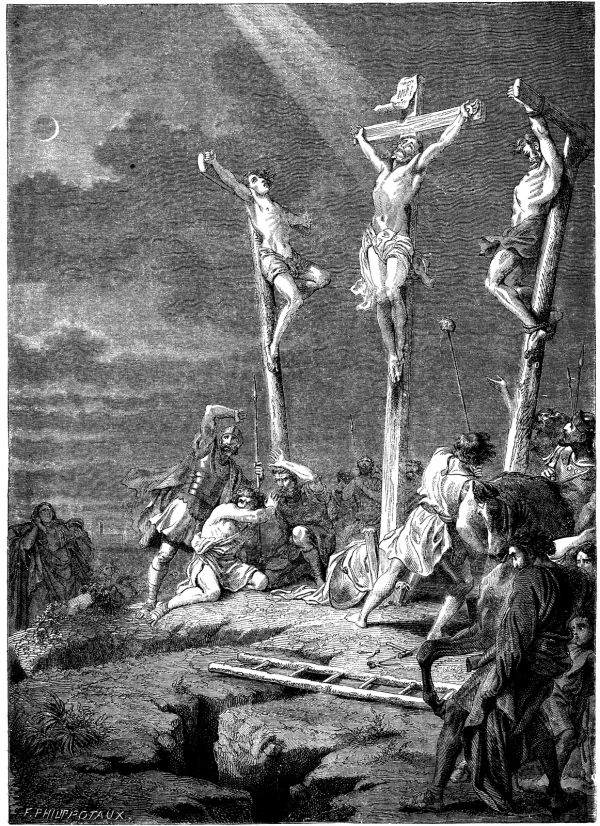A young, innovating, and ardent Church, full of the future, because it was composed of the most diverse elements, was quickly founded.
Today we continue Christianity Appears
with a selection from Histoire des Origines du Christianisme by J. Ernest Renan published in 1881. The selections are presented in a series of installments for 5 minute daily reading.
Previously in Christianity Appears.
Time: 40
Place: Antioch

About the year 40 the great question upon which depended all the future of Christianity appears thus to have been propounded. Peter and Philip took a very just view of what was the true solution, and baptized pagans.
The new faith was spread from place to place with marvelous rapidity. The members of the Church of Jerusalem, who had been dispersed immediately after the death of Stephen, pushing their conquests along the coast of Phoenicia, reached Cyprus and Antioch. They were at first guided by the sole principle of preaching the Gospel to the Jews only.
Antioch, “the metropolis of the East,” the third city of the world, was the centre of this Christian movement in Northern Syria. It was a city with a population of more than five hundred thousand souls, and the residence of the imperial legate of Syria. Suddenly advanced to a high degree of splendor by the Seleucidae, it reaped great benefit from the Roman occupation. Antioch, from its foundation, had been wholly a Grecian city. The Macedonians of Antigone and Seleucus had brought with them into that country of the Lower Orontes their most lively recollections, their worship, and the names of their country. The Grecian mythology was there adopted as it were in a second home; they pretended to show in the country a crowd of “holy places” forming part of this mythology. The city was full of the worship of Apollo and of the nymphs. The degradation of the people was awful. The peculiarity of these centers of moral putrefaction is to reduce all the race of mankind to the same level. The depravity of certain Levantine cities, which are dominated by the spirit of intrigue and delivered up entirely to low cunning, can scarcely give us an idea of the degree of corruption reached by the human race at Antioch. It was an inconceivable medley of mountebanks, quacks, buffoons, magicians, miracle-mongers, sorcerers, false priests; a city of races, games, dances, processions, feasts, revels, of unbridled luxury, of all the follies of the East, of the most unhealthy superstitions, and of the fanaticism of the orgy. The city was very literary, but literary only in the literature of rhetoricians. The beauty of works of art and the infinite charm of nature prevented this moral degradation from sinking entirely into hideousness and vulgarity.
The Church of Antioch owed its foundation to some believers originally from Cyprus and Cyrene, who had already been much engaged in preaching. Up to this time they had only addressed themselves to the Jews. But in a city where pure Jews–Jews who were proselytes, “people fearing God” — or half-Jewish pagans and pure pagans, lived together, exclusive preaching restricted to a group of houses became impossible. That feeling of religious aristocracy on which the Jews of Jerusalem so much prided themselves did not exist in those large cities, where civilization was altogether of the profane sort, where the scope was greater, and where prejudices were less firmly rooted. The Cypriot and Cyrenian missionaries were then constrained to depart from their rule. They preached to the Jews and to the Greeks indifferently.
The success of the Christian preaching was great. A young, innovating, and ardent Church, full of the future, because it was composed of the most diverse elements, was quickly founded. All the gifts of the Holy Spirit were there poured out, and it was easy to perceive that this new Church, emancipated from the strict Mosaism which erected an insuperable barrier around Jerusalem, would become the second cradle of Christianity. Assuredly, Jerusalem must remain forever the capital of the Christian world; nevertheless, the point of departure of the Church of the Gentiles, the primordial focus of Christian missions, was, in truth, Antioch. It was there that for the first time a Christian church was established, freed from the bonds of Judaism; it was there that the great propaganda of the apostolic age was established; it was there that St. Paul assumed a definite character. Antioch marks the second halting-place of the progress of Christianity, and, in respect of Christian nobility, neither Rome nor Alexandria nor Constantinople can be at all compared with it.
The foundation of Christianity, from this point of view, is the greatest work that the men of the people have ever achieved. Very quickly, without doubt, men and women of the high Roman nobility joined themselves to the Church. At the end of the first century, Flavius Clemens and Flavia Domitilla show us Christianity penetrating almost into the palace of the Caesars.
| <—Previous | Master List | Next—> |
J. Ernest Renan begins here. Isaac M. Wise begins here. John Henry Newman begins here.
More information here and here, and below.
We want to take this site to the next level but we need money to do that. Please contribute directly by signing up at https://www.patreon.com/history

Leave a Reply
You must be logged in to post a comment.